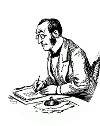When The Game Was Not The Thing
Comments
<comments voting="Plus" />
Lacking access through my usual online sources to the local papers, fleshing out background to the following wasn’t an option for this exercise, but enough was gleanable to ferret out the points which make it interesting. Mobile, Alabama, in the spring of 1867 seemed to have largely regained its prewar footings, to the extent that a dramatic club (called the “Dramatic Club”) was not only, presumably, dramatizing (the club was founded by members of the local theater community) but had the previous fall (and also possibly in the fall of 1865) begun playing base ball on the side, going so far in November 1866 as to seek advice on playing rules from the damn Yankees at the New York Clipper. That they were transferring their allegiance to the national game (as was taking place in many cities of the erstwhile Confederacy that spring) from a previous regional form is evidenced by their question to the Clipper: Could a striker, once put out, bat again in the same inning? In some old regional variants of the game, the answer was “No”.
The big doings in Mobile on Wednesday, April 10, 1867, was the Annual Firemen’s Parade, a procession of firemen’s companies, reported to have been a mile long, drawing throngs of spectators and featuring gaily decorated engines and colorfully-uniformed firemen. Reaching the local theater, several speakers harangued the crowd on this and that. Meanwhile the Dramatic Club, which had also marched in the procession, hustled off to its grounds near the abandoned Confederate army redoubts to prepare for the day’s other attraction, the club’s game with the Lone Star club of New Orleans, champions of that city, and, presumably, of the Southeast, as New Orleans gentlemen had been playing the national game since 1859. Reprints of reports from Mobile in the New Orleans papers reckoned the attendance for the match at 1,000 to 1,500, and a visiting member of the Diamond State Base Ball Club of Wilmington, DE, served as umpire. Seating had been provided for ladies and a few special guests; as the Mobile Register remarked, “Place aux dames was of course the motto of the occasion, as it always is, whenever and wherever the votaries of chivalrous and manly sports are assembled.” As the game progressed, the “lithe, active, and graceful forms” of the visitors became “the objects of general admiration”, while the locals, the pioneers of the game in Mobile, were observed to have sponsored the unequal match for the purposes of promoting the sport and establishing a friendly rivalry. The Register described the banquet that followed the match as “one of the most recherche occasions of the season”: the usual restriction of the Lenten season were set aside for bountiful food and drink and graceful champagne toasts, and, presumably the customary presentation of the game ball to the victorious Lone Stars. The affair lasted so late that the visitors’ departure (by boat) for their 150-mile return trip was delayed until the next morning. Game score? Dramatic Club of Mobile 7, Lone Star Club of New Orleans, 92.
